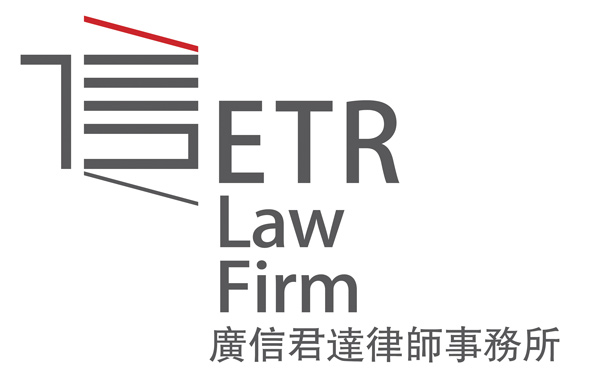Based on article 132 of the 2005 Company Law, which stipulates that: “The State Council may make separate regulations on the issuance of other types of shares than those provided for in this law by companies”, the State Council issued the Guiding Opinions on the Launch of the Preferred Share Pilot in 2013.

Partner
ETR Law Firm
The opinions stipulate that the issuers of public issuance of preferred shares are limited to listed companies, as prescribed by the China Securities Regulatory Commission, and the issuers of non-public issuance of preferred shares are limited to listed companies (including overseas listed companies registered in China) and unlisted public companies. It can be seen that the issuer of preferred shares is limited to companies limited by shares, and limited liability companies are not included. However, according to the Company Law, limited liability companies also have the possibility to implement preferred shares to a certain extent.
According to the opinions, the preferred share has following characteristics.
Preferential distribution of profits. Preferred shareholders have priority over ordinary shareholders when distributing company benefits. The company may not distribute profits to ordinary shareholders until the agreed dividends have been fully paid to the preferred shareholders.
Preferential distribution of remaining property. When the company is liquidated, due to dissolution or other reasons, the remaining property of the company after liquidation shall be applied first to pay the unpaid dividends and the liquidation amount agreed upon in the articles of association to the preferred shareholders. If insufficient to do so, it shall be distributed in proportion to the shareholding of the preferred shareholders.
Restrictions of voting rights. Preferred shareholders shall not attend general meetings of shareholders, and have no rights to vote on their shares, except for following situations:
(1) amendment to the preferred share-related rules in companies’ articles of association;
(2) reduction of the registered capital of the company by more than 10% at one time, or in aggregate;
(3) merger, demerger, dissolution, or change of corporate form of the company;
(4) issuance of preferred shares; and
(5) other situations stipulated in the articles of association.
Resolutions on the above-mentioned matters shall be passed by at least two-thirds of the votes held by the shareholders of preferred shares (excluding the shareholders of preferred shares whose voting rights have been restored) present at the meeting, in addition to at least two-thirds of the votes held by the shareholders of ordinary shares (including the shareholders of preferred shares whose voting rights have been restored) present at the meeting.
Restoration of voting rights. Preferred shareholders are entitled to attend shareholders’ meetings and enjoy the voting rights on each share, as stipulated in the articles of association, if the company did not pay the dividends on preferred shares for a total of three fiscal years, or two consecutive fiscal years. For preferred shares where dividends are cumulative, voting rights are restored until the company pays the current year’s dividend in full. The articles of association may provide for other circumstances under which voting rights of preferred shares may be restored.
Calculation related to the types of shares. Only ordinary shares and preferred shares where voting rights are restored shall be counted for the purpose of calculating the shareholding ratio for the following matters:
(1) requesting an extraordinary general meeting of shareholders according to article 101 of the Company Law;
(2) calling and presiding over a general meeting of shareholders according to article 102 of the Company Law;
(3) submitting a provisional proposal for a general meeting of shareholders according to article 103 of the Company Law; and
(4) identifying a controlling shareholder according to article 217 of the Company Law.
Based on the above characteristics of preferred shares, and the relevant provisions of the Company Law, the shareholders of limited liability companies can implement preferred rights through the following approaches.
Preferential distribution of profits. According to article 34 of the Company Law, all shareholders have the right to receive the distribution of dividends or subscribe additional capital not in proportion to their capital contributions. In other words, all shareholders may distribute distributable profits to specific shareholders preferentially by agreement.
Preferential distribution of remaining property. According to paragraph 2, article 187 of the Company Law, the remaining property of the company after liquidation shall be distributed to shareholders in proportion to their capital contributions in limited liability companies, and in proportion to the shares held by the shareholders in companies limited by shares. Although this article does not expressly state that the shareholders can agree on the distribution of the remaining property, as in article 34, it also does not explicitly prohibit it. In light of the private law nature of the Company Law, and in accordance with the principle of “absence of explicit prohibition means freedom”, all shareholders should be able to make other agreements on the order and proportion of the distribution of the remaining property.
Restrictions or restoration of voting rights. According to articles 42 and 43 of the Company Law, unless otherwise specified, the articles of association shall have the right to regulate the proceedings, voting procedures and voting rights of the shareholders’ meetings, i.e., the shareholders’ meetings may exercise voting rights not in proportion to the shareholder’s capital contributions. In practice, this can be used to limit the voting rights of new shareholders, e.g., to limit the voting rights in the articles of association of the new shareholders who enjoy the right to preferential distribution of profits, and to narrow their voting rights in proportion to their capital contributions.
Since there is no legal basis for the implementation of preferred shares in a limited liability company, and it is rather determined by shareholders’ negotiation, special attention should be paid not to harm the interests of the company, its creditors and other shareholders. Otherwise, the agreement will be deemed invalid, and the shareholders who are entitled to preferred shares will not be able to realise their rights and interests.
Hou Yu is a partner at ETR Law Firm
10 & 29/F, Chow Tai Fook Finance Centre
No.6 Zhujiang Dong Road, Tianhe District
Guangzhou 510623, China
Tel: +86 20 3718 1333
Fax: +86 20 3718 1388
Email: houyu@etrlawfirm.com






















